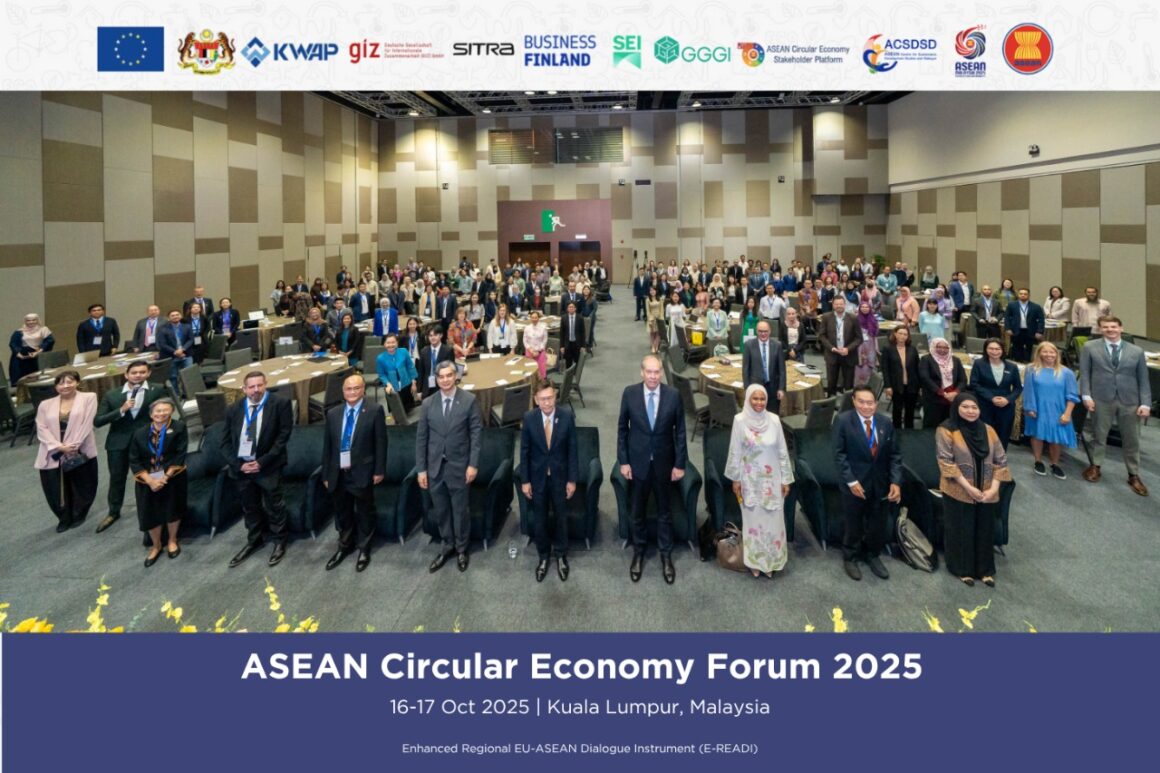Kuala Lumpur, 16–17 October 2025 — The ASEAN Circular Economy Forum (ACEF2025) brought together over 200 policymakers, business leaders, innovators, and development partners from across ASEAN and Europe, with an additional 300 participants joining online, making Kuala Lumpur the hub of Southeast Asia’s circular economy movement. Organised as the highlight of ASEAN Circular Economy Week, this year’s forum carried the theme “Accelerate the Circular Economy Transition in ASEAN with Green Skills, Innovative Solutions, and Investments.” It reaffirmed ASEAN’s commitment to advancing circularity as a pathway to sustainable growth, regional resilience, and inclusive prosperity.
The ACEF 2025 is jointly organised by the ASEAN Centre for Sustainable Development Studies and Dialogue (ACSDSD) and its ASEAN Circular Economy Stakeholder Platform (ACESP), in collaboration with the European Union (EU) through its Enhanced Regional EU–ASEAN Dialogue Instrument (E-READI), the ASEAN Secretariat, the Finnish Innovation Fund Sitra, and other partners, with the support of the Malaysian Ministry of Natural Resources and Environment (NRES). The Forum is held in conjunction with the International Greentech & Eco Products Exhibition and Conference Malaysia (IGEM), as part of the inaugural Kuala Lumpur Sustainability Summit (KLSS) 2025.
The event was supported by the European Union (EU), reflecting the EU’s longstanding partnership with ASEAN in promoting a green and inclusive transition — notably through the EU Global Gateway and Green Team Europe Initiative.
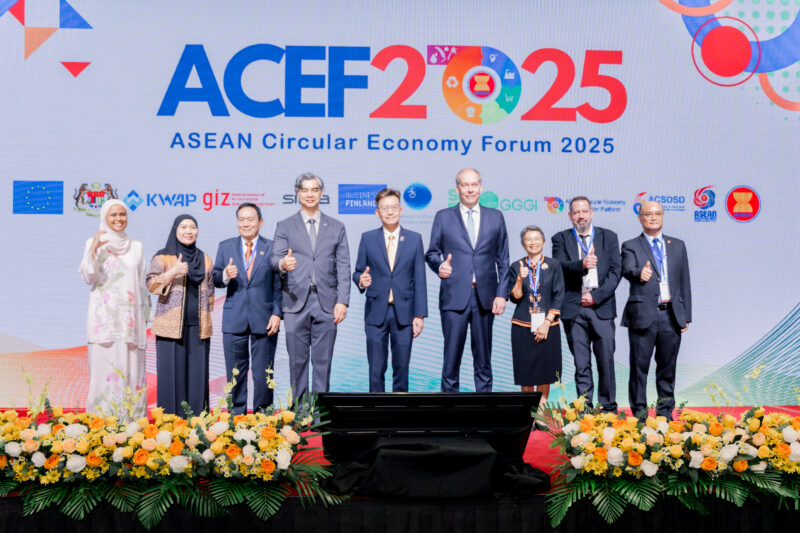
Opening Remarks: Shared Commitment to a Greener ASEAN
In opening the discussions, leaders emphasised that ASEAN’s circular transition is not only an environmental agenda but a strategic and economic opportunity for the region. By linking circularity with innovation, investment, and workforce development, ASEAN is building a foundation for a future that is both sustainable and competitive.
The forum opened with inspiring remarks from distinguished leaders, setting a strong tone for collaboration and action.
-
H.E. Kao Kim Hourn, Secretary-General of ASEAN (pre-recorded), reaffirmed ASEAN’s growing momentum in advancing circular economy policies and called for strengthened partnerships to translate regional strategies into practical action.
-
H.E. Sujiro Seam, Ambassador of the European Union to ASEAN, highlighted the EU’s continued commitment to supporting ASEAN’s green transition through joint initiatives that align economic growth with environmental sustainability.
-
H.E. Dr. Pitchayaphant Charnbhumidol, Advisor to the Minister of Foreign Affairs of Thailand, underscored Thailand’s leadership in advancing the Bio-Circular-Green (BCG) economy and ASEAN’s shared responsibility in achieving a sustainable future.
-
H.E. Jarno Syrjälä, Finnish Under-Secretary for International Trade, shared Finland’s experience in embedding circularity into trade and innovation policies, emphasising that knowledge exchange and international cooperation are key to accelerating progress in ASEAN.
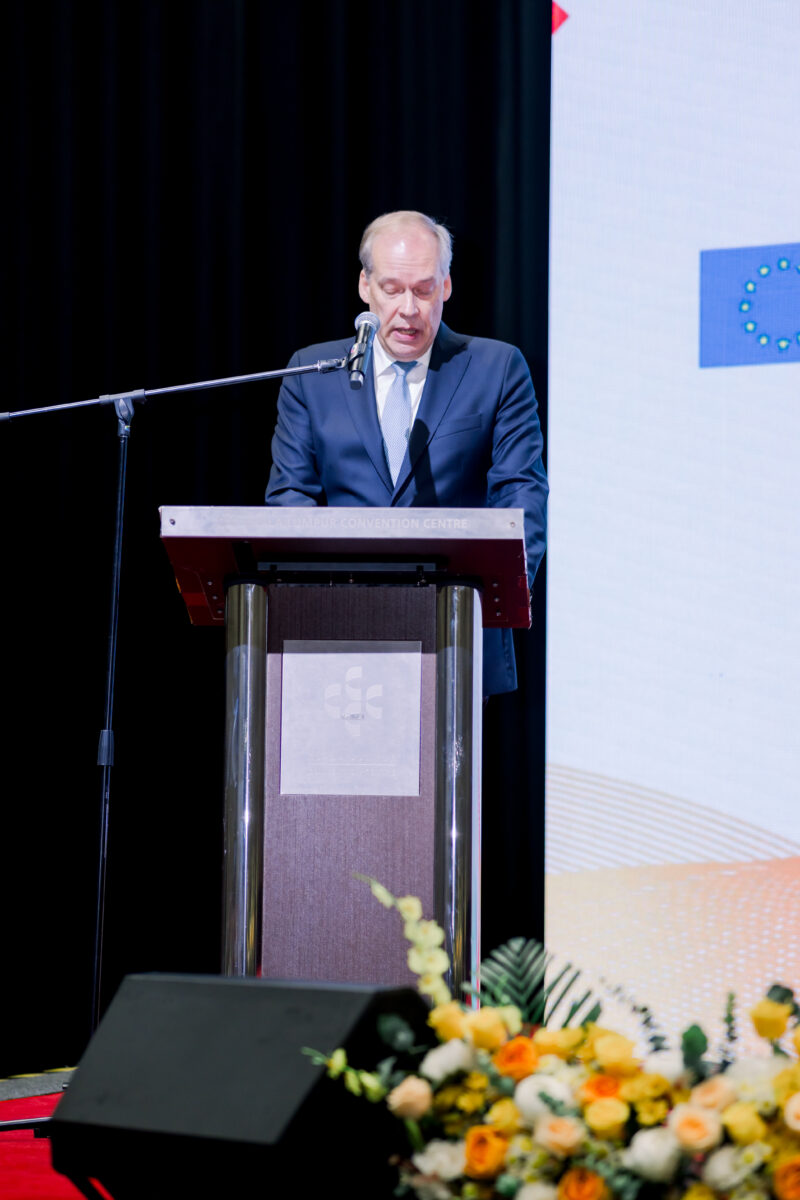
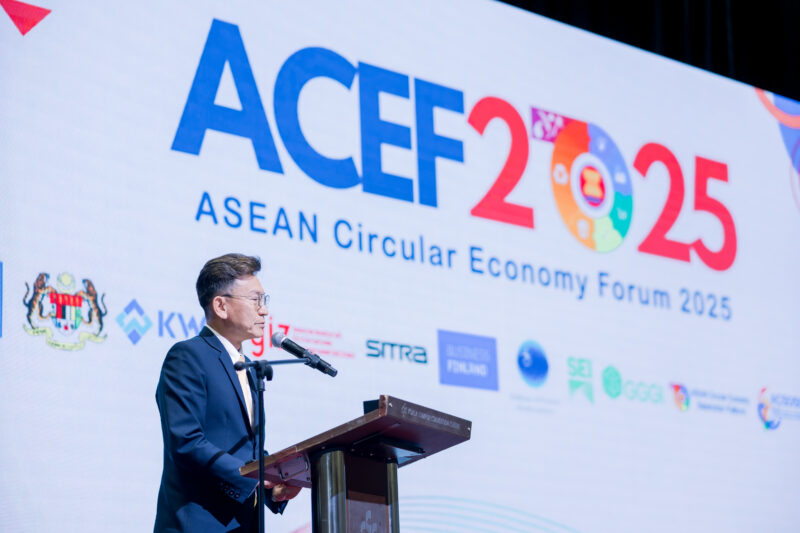
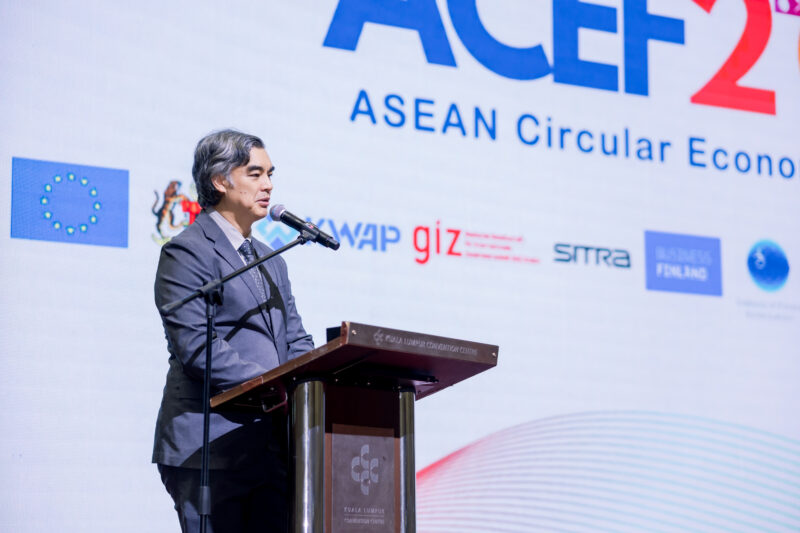
Their collective messages underscored a unifying theme: that ASEAN’s circular transition must be built through partnerships, innovation, and shared vision.
A Shared Vision for a Circular ASEAN
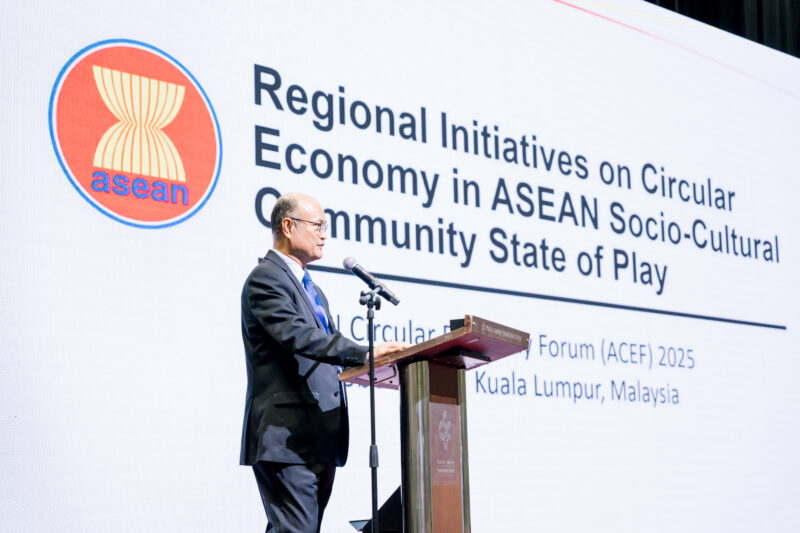 Day 1 of the forum explored the state of play of the circular economy in ASEAN — where the region stands and where it is heading. Speakers examined how circularity connects directly to the ASEAN Vision 2045, and how innovation, green skills, and circular startups are unlocking new value for people and the planet. Several new ASEAN circular economy initiatives were announced, signalling that the region is ready to move from discussion to implementation.
Day 1 of the forum explored the state of play of the circular economy in ASEAN — where the region stands and where it is heading. Speakers examined how circularity connects directly to the ASEAN Vision 2045, and how innovation, green skills, and circular startups are unlocking new value for people and the planet. Several new ASEAN circular economy initiatives were announced, signalling that the region is ready to move from discussion to implementation.
Participants were reminded to learn, unlearn, and be surprised — to challenge assumptions and embrace new possibilities in how the region produces, consumes, and cooperates.
From Ideas to Action
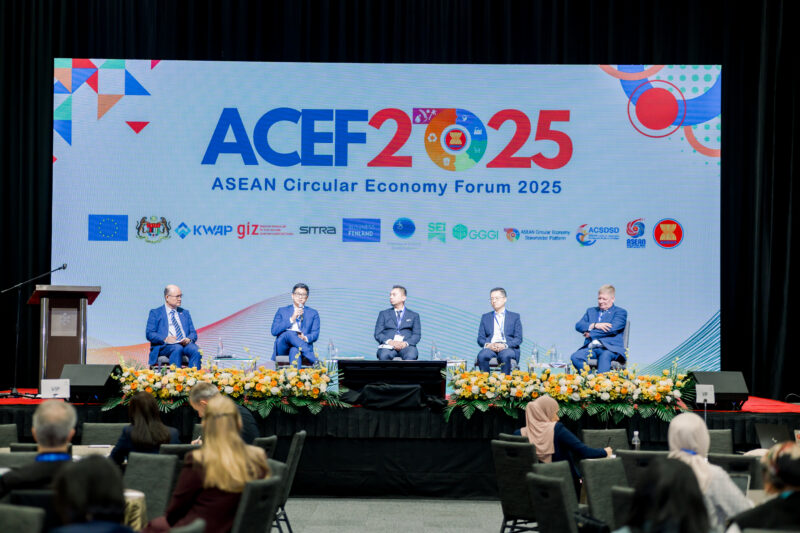
Day 2 focused on how ASEAN can accelerate the circular transition. The first panel highlighted priority areas for regional harmonised action, including the development of data, metrics, and cross-border trade mechanisms to make circular business models truly scalable. The private sector reinforced the importance of policy clarity and shared standards as key drivers for regional impact.
The second panel turned to enabling environments — from innovative financing and green bonds to crowdfunding and supportive policy frameworks that nurture local innovation. Speakers shared inspiring examples of how circular practices strengthen communities, women’s empowerment, and cultural livelihoods, underlining that the circular transition must be human-centred and inclusive.
Insights from participant reflections echoed one clear message:
The circular transition cannot succeed in isolation — it requires champions across all sectors, working together with shared purpose and trust.
Partnership: The Engine of Circular Transition
If there is one overarching message from ACEF2025, it is that partnership is not a supporting element — it is the very engine of the circular economy transition in ASEAN.
No single ministry, company, or organisation can close the loop alone. Regional harmonisation, knowledge sharing, and joint investment efforts — such as those under the ASEAN–EU Green Team Europe Initiative — demonstrate what is possible when stakeholders align their efforts.
A truly inclusive circular economy must connect top-down regional strategies with bottom-up community solutions, linking policy frameworks with grassroots innovation. Partnerships bridge these levels — turning ideas into actions, and actions into shared progress.
Continuing the ACEF Journey
As the ASEAN Circular Economy Forum 2025 concluded, participants expressed their commitment to turning conversations into collaborations — to work together, invest together, and accelerate the circular economy transition together for a sustainable and inclusive ASEAN.
It is encouraging to see the ASEAN Circular Economy Forum becoming alive on its own since 2023. The ASEAN Circular Economy Stakeholder Platform (ACESP) at the ASEAN Centre for Sustainable Development Studies and Dialogue (ACSDSD) will continue this journey and move it to the next level, ensuring that the momentum built in Kuala Lumpur continues to shape ASEAN’s circular future.


